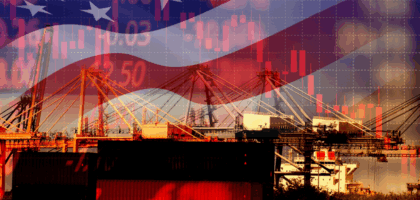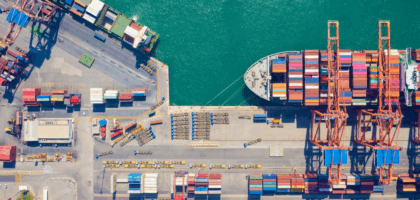Last year, we covered the most common freight forwarding terms in the blog “Learning the Lingo of a Freight Forwarder.” We know that understanding the extensive terminology of the logistics world can be intimidating, and we want to make it easier.
This year, one of our main focuses is educating on cargo insurance. Below is the most important vocabulary you need to know.
- Act of God – Accidents caused by nature, such as floods, hurricanes, and wildfires. The carrier is not liable in these situations, as they are uncontrollable.
- Act of War – An act of aggression by one country against another. Many insurance policies have act of war clauses, meaning the damage or loss from these instances would not be covered.
- Act of Civil Commotion – Destruction of property caused by strikes, riots, and other commotions. In many cases, these events would not be covered.
- Act of Public Enemies – Destruction caused by the hostile actions of another country’s military. This excludes terrorist acts, riots, and hijacking.
- All-Risk Coverage – A type of insurance that provides the most comprehensive coverage for freight in transit.
- Approved Merchandise – Merchandise that is unlikely to be lost or damaged by its nature or because it has been properly packaged. This term includes most goods.
- Burden of Proof – The shipper’s obligation to prove that the loss resulted from the carrier’s negligence.
- Commercial Invoice – A bill for the goods from the seller to the buyer. These invoices are often used by governments to determine the true value of goods for the assessment of customs duties and are also used to prepare consular documentation.
- Constructive Total Loss – When the cost of fixing damaged cargo is greater than its insured value.
- Contingent Insurance – A secondary insurance that provides protection for unexpected occurrences.
- Conveyance – Means of transportation, such as barges, vessels, aircraft, private vehicles, and trucks.
- Cost and Freight (CFR) – The seller must handle the costs and freight necessary to deliver the goods to the designated port. After delivery onto the vessel, the risks of loss, damage, and other expenses are transferred from the seller to the buyer. The term CFR is only used in the context of maritime transport.
- Cost, Insurance and Freight (CIF) – In addition to handling the CFR responsibilities, the seller must purchase marine insurance for protection of the buyer’s goods during transit. The seller is only required to buy a minimum premium to insure the goods until they reach the destination port. The term CIF is only used in the context of maritime transport.
- Declared Value – The value of a shipment, determined by the shipper.
- Free of Particular Average (FPA) Coverage – This insurance clause removes the insurer’s accountability for any partial cargo loss or damage, unless it was caused by a peril of the sea, such as collision or sinking.
- Free on Board (FOB) – A term of sale regarding liability for damage to goods throughout each point in the shipment process. The seller is no longer responsible once the goods are passed to the carrier and loaded onto the vessel.
- General Average – When all stakeholders in a sea venture divide the expenses and losses following a voluntary sacrifice made during an emergency. The crew may jettison cargo to save the crew or ship during a storm or other unforeseen event.
- Jettison – Intentionally dumping materials overboard, which may be cargo, in order to protect the crew, ship, or remaining cargo from danger.
- Limited Liability – The limit that a carrier will pay if goods are lost or damaged while in their control or custody. This is typically found within the Bill of Lading (BOL).
- Marine Surveyor – A specialist that collects information on the nature or cause of a loss or damage to cargo.
- Shore Perils – Dangers, losses, and accidents having to do with sailing. This may include a collision with another vessel or encountering a storm. Additionally, this can apply to goods on the shore, called perils.
- SR&CC Warranty – Coverage for damage caused by strikes, riots, civil commotions, and terrorist attacks.
- Statement of Value (SOV) – A report that the insured gives to the insurer summarizing the type and value of the insured property, as well as the method for calculating the value.
- Valuation Clause – Under the Open Cargo Policy, this is a way to decide the insured value of a shipment.
- War Risk – Insurance that covers damage or loss to cargo due to risks and dangers caused by war.



